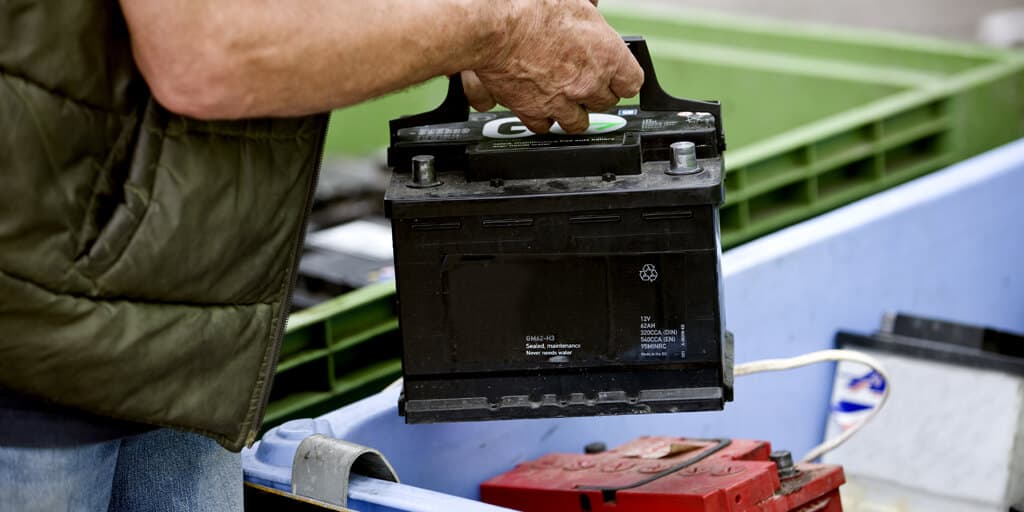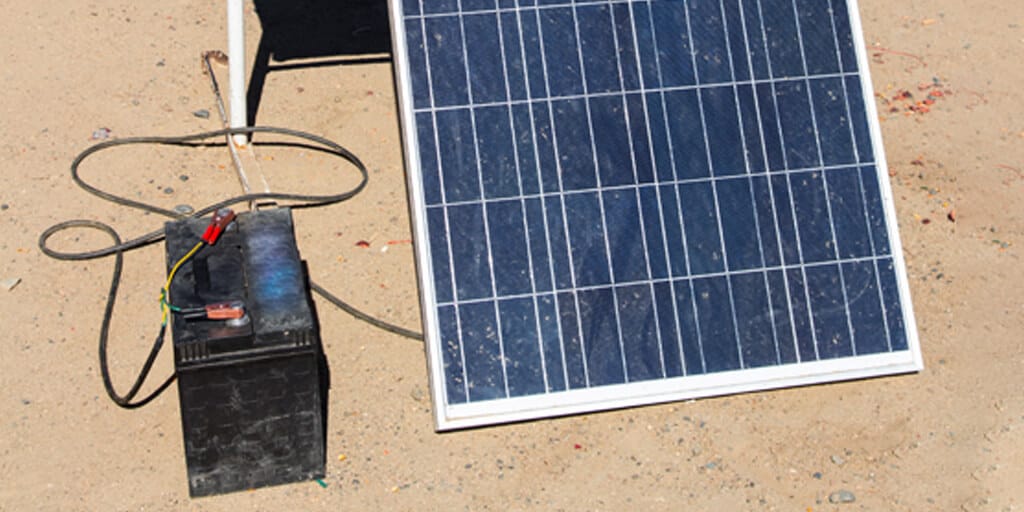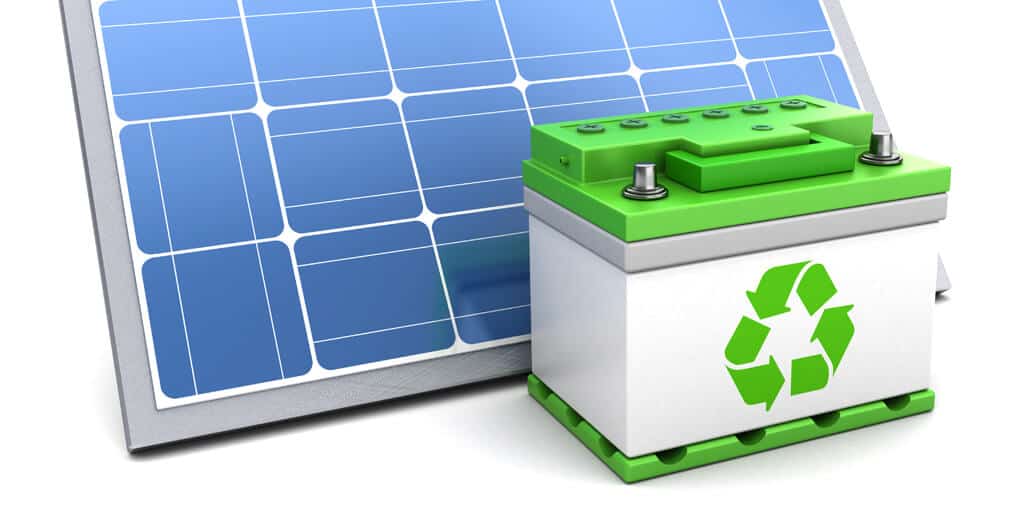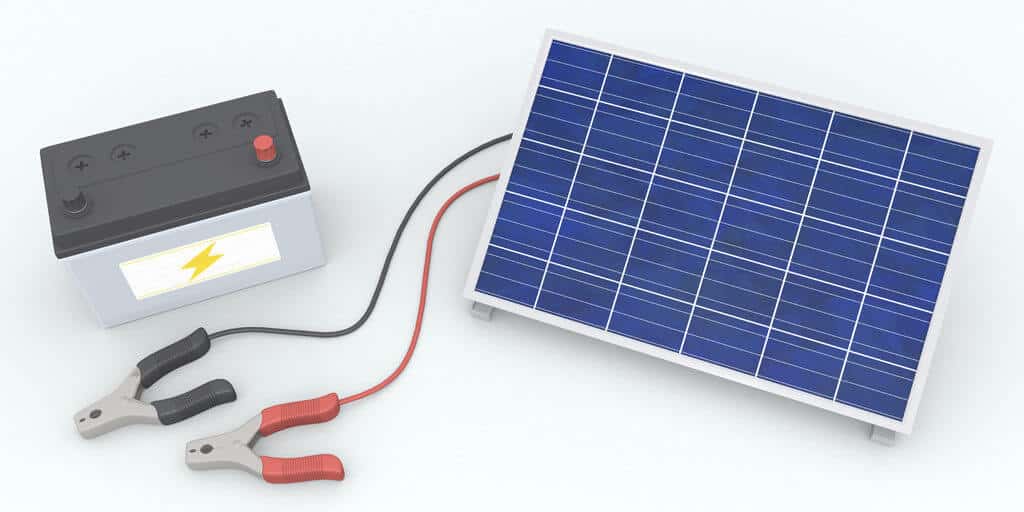As a family passionate about both preserving the environment and enhancing our financial stability, we find ourselves drawn towards renewable energy solutions, particularly solar energy. This journey led us to a pivotal component of solar power systems – solar panel batteries. We'll share our exploration of the diverse types of solar batteries available in the market, highlighting their pros and cons. Through our lens, we hope to guide you in identifying the solar battery that could potentially meet your needs, just as we aim to reduce our carbon footprint and save on our energy bills.
Understanding Solar Panel Batteries
Before diving into the specifics of different types of solar panel batteries, it's crucial to understand what they do and why they're essential. Solar Panel batteries store the energy produced by your solar panel kits, allowing you to use it during the night or on cloudy days when your panels aren't generating electricity. This ability to store energy significantly increases the effectiveness and independence of a solar energy system, making it a vital component of any renewable energy setup.

Will These Batteries Work With My Solar?
While navigating the world of solar batteries, certain key aspects need to be carefully considered. Ensuring your chosen batteries align with these factors will help you integrate them seamlessly with your solar panel cleaning. These criteria include the battery's capacity and power rating, the depth of discharge, round-trip efficiency, warranty information, and manufacturer reputation.
Capacity/power rating:
Capacity refers to the total amount of electricity a solar battery can store, which is measured in kilowatt-hours (kWh). This indicator determines how much solar power your system can store for later use. The power rating of a battery, measured in kilowatts (kW), is another vital feature. It describes the amount of electricity a battery can deliver at a given moment. Balancing capacity and power rating will ensure your solar system can meet your energy needs both in volume and at peak demand times.
Depth of discharges:
Solar batteries, due to their chemical composition, need to maintain a certain level of charge continuously. The term ‘Depth of Discharge' denotes the percentage of a battery's capacity that has been used. It's a crucial parameter to ensure the longevity and efficient operation of your solar battery. Higher DoD means you can utilize more of your battery's capacity, but it can also shorten the battery's lifespan. Therefore, understanding and managing DoD effectively is key to the optimal functioning of your solar setup.
Round-trip efficiency:
Round-trip efficiency is a major determinant when choosing a solar battery. It quantifies the energy retained after a cycle of discharging and recharging. Specifically, it's the ratio of the energy used to the energy needed for storage. A higher round-trip efficiency implies a more economical battery since more of the stored energy is available for use. Thus, considering round-trip efficiency will help you optimize your solar energy usage and potentially reduce costs.
Warranty information:
Given the significant investment that solar systems entail, the longevity of your battery and the protections offered by its warranty is critical. A comprehensive warranty not only promises a specified lifespan but also ensures your coverage if issues arise. It's always beneficial to understand the terms and conditions, including the period and coverage, of your warranty to secure your investment.
Manufacturer information:
The reputation of the battery's manufacturer plays an integral part in your decision-making process. You should opt for a company known for its superior product quality, robust customer service, and overall reliability. Researching and choosing a reputable manufacturer can provide assurance in the product's durability, performance, and the support you'll receive if any problems occur.
Armed with these insights, you're well-prepared to choose the right solar battery for your needs. Additionally, familiarizing yourself with the various types of solar batteries used globally can provide further context and options for your solar power journey. It's a detailed process, but with these guidelines in mind, you'll be set to make an informed decision about which solar batteries will best complement your solar panels.

The Different Types of Solar Panel Batteries
As the search for efficient and sustainable energy storage solutions continues, a variety of solar panel installations have emerged. Each brings a unique set of characteristics and advantages, catering to different needs and preferences. The most prevalent battery types include lead-acid, lithium-ion, saltwater, and nickel-based batteries.
Lead-Acid Batteries: Old but Reliable
Lead-acid batteries boast a longstanding history, serving as tried-and-true technology for many years. Their longevity can be attributed to their reliable performance, making them a popular choice for off-grid installations and backup power systems. Despite their widespread use, these batteries tend to have shorter lifespans and lower efficiency when juxtaposed with other battery types.
There are two primary subsets of lead-acid batteries:
- Flooded Lead Acid (FLA): These batteries offer a cost-effective solution, though they require regular maintenance to ensure optimal performance. An FLA battery typically lasts between 5 to 7 years, making them a decent option for shorter-term needs.
- Sealed Lead Acid (SLA): SLA batteries provide a maintenance-free alternative, albeit at a slightly higher price. Their lifespan parallels that of FLA batteries, providing a similar service life but with less hands-on upkeep.
Lithium-Ion Batteries: The Rising Star
Lithium-ion batteries have surged in popularity in the recent past, largely due to their high efficiency and long lifespan. Their maintenance-free design makes them a convenient choice for many users. These are the same batteries that power electric vehicles and smartphones, proving their versatility. A lithium-ion battery typically boasts a lifespan of about 10-15 years. However, their superior features come with a higher price tag, making them the most expensive option on the list.
Saltwater Batteries: An Eco-friendly Innovation
Saltwater batteries represent a recent addition to the solar battery landscape. Their primary function relies on saltwater electrolytes to store energy. These batteries stand out due to their eco-friendliness and safety profile, offering an alternative that is both safe to use and environmentally conscious. Furthermore, they are fully recyclable, further reducing their environmental impact. Nonetheless, when compared to lithium-ion batteries, saltwater batteries exhibit lower efficiency and a shorter lifespan.
Nickel-based Batteries: The Long-lasting Alternative
Nickel-based batteries, and in particular, Nickel-Iron (NiFe) batteries, are notable for their incredibly long lifespan, lasting up to 20-30 years or even more in some cases. These batteries are highly durable, capable of enduring deep discharges without a significant loss in capacity. However, their efficiency falls short when compared to lithium-ion batteries, and they require regular maintenance to keep them in top shape. Despite their longer life, they come with a higher price tag than lead-acid batteries.

Which Solar Panel Battery is Right for You?
Determining the most suitable ring solar panel battery for your setup hinges on several important factors, encompassing your financial capacity, specific energy requirements, environmental considerations, and the desired lifespan of your battery.
Budget Considerations: Balancing Costs and Lifespan
Financial constraints often play a pivotal role in deciding the right battery type. If immediate cost-effectiveness is your primary concern, lead-acid batteries may seem appealing due to their affordability. These batteries, however, come with a trade-off. Their shorter lifespan necessitates more frequent replacements, potentially leading to greater expenses over time. Thus, while being a financially sound choice in the short-term, lead-acid batteries could entail higher costs in the long run.
Energy Requirements: Seeking High Efficiency and Longevity
For those seeking a highly efficient system with long service life, lithium-ion batteries emerge as a strong contender. They boast the highest energy storage capacity, coupled with an impressive lifespan of around 10-15 years. This longevity means fewer replacements, making them a cost-effective choice in the long run. However, they come with a higher upfront cost, which might be a deterrent for those working within a tight budget.
Environmental Concerns: Prioritizing Sustainability and Recyclability
If your decision-making is largely influenced by environmental impact, saltwater batteries present an attractive option. Their unique selling point lies in their eco-friendly nature – they are completely recyclable, causing minimal environmental harm. This type of battery aligns well with the ethos of renewable energy and sustainability. However, it's important to note that saltwater batteries may not match up to others in terms of efficiency and lifespan, so these factors should be considered as well.
Longevity: Opting for Durable Battery Life
For those prioritizing battery life above all, nickel-iron batteries stand out due to their incredibly long lifespan of up to 30 years. These batteries can significantly outlast others, providing a long-term solution for your solar power needs. However, they require more regular maintenance and their efficiency lags behind that of lithium-ion batteries. Plus, they are usually more expensive than lead-acid batteries.
Solar Panel Costs
Solar panel can vary widely based on several factors including the size of the system, the type and efficiency of the solar panels, your location, and any available incentives or subsidies. As of my knowledge cutoff in September 2021, the average cost of solar panels in the United States was around $2.81 to $3.22 per watt, before any tax credits or incentives.
This means that a typical 6-kilowatt residential solar panel system could cost between $16,860 and $19,320 before tax credits, or between $12,486 and $14,307 after the federal tax credit. However, prices have been dropping steadily over the past decade, and local incentives or bulk buying programs can further reduce these costs. It's also important to factor in long-term savings on electricity bills when considering the cost of solar panels.
Solar Panel Installation Costs
The cost of solar panel installation can vary significantly depending on several factors, including the size of the solar panel system, the type and quality of the solar panels and equipment used, the installation company's pricing, and the location of the property. As of my knowledge cutoff in September 2021, the average cost in the United States ranges from $15,000 to $25,000 for a typical residential solar panel system (before applying tax credits or incentives), which usually measures between 6 and 12 kilowatts.
However, the cost per watt has been steadily decreasing over time due to advancements in technology and increased market competition, making solar power more accessible and affordable. Always remember to consult a local solar installation professional for the most current and accurate pricing information.
Why Should You Know All This?
Knowledge is power, and this is particularly true when it comes to selecting solar panel installers and batteries. The lifespan of your solar energy system hinges largely on the type and quality of the batteries you choose. By comprehending the range of options outlined above, you are better positioned to make a choice that aligns with your specific requirements and delivers the desired performance.
Choosing potent and efficient solar batteries is a critical step in building a robust solar system designed to serve you well into the future. An appropriate battery is more than just a component of your solar system; it's the heart that ensures longevity and reliability. A solar system backed by quality batteries translates into consistent, dependable power supply and reduced maintenance or replacement needs.
Your commitment to understanding the nuances of different batteries significantly enhances the probability of achieving your solar power goals. Whether you aim to establish an off-grid residence, power your business with renewable energy, or simply contribute to a sustainable future, the journey likely begins with the selection of the right battery.
Delving into the intricacies of solar batteries may initially seem complex, but this investment of time and effort can ultimately yield significant dividends. Not only does this enable you to better appreciate the workings of your solar system, but it also empowers you to make an informed decision that can guarantee years of seamless solar power supply. Thus, exploring and understanding the world of solar batteries is a vital step for anyone planning to harness the power of the sun.
FAQs
How many solar panels are needed to power a house?
The number of solar panels needed to power a house depends on various factors, including the energy consumption of the house, the geographic location, the efficiency of the solar panels, and the amount of sunlight available. On average, a typical residential solar panel system ranges from 10 to 20 solar panels. However, it's best to consult with a solar professional to determine the exact number of panels needed for your specific circumstances.
How much is a 1 solar panel?
The cost of a single solar panel can vary depending on factors such as the brand, size, and efficiency. As of my knowledge cutoff in September 2021, the price of a standard solar panel can range from $0.50 to $1.50 per watt. However, it's essential to note that solar panel prices have been decreasing over the years due to advancements in technology and economies of scale.
Are solar panels ever worth it?
Whether solar panels are worth it depends on individual circumstances. Solar panels can provide several benefits, such as reducing electricity bills, decreasing reliance on fossil fuels, and contributing to environmental sustainability. Additionally, there may be financial incentives, such as tax credits or net metering programs, that can further enhance the value of solar panels. However, the financial feasibility of solar panels can vary based on factors like location, energy consumption, available incentives, and upfront installation costs. It's advisable to evaluate your specific situation and consult with solar professionals to determine if solar panels are a worthwhile investment for you.
How much is a Tesla home solar system?
The pricing of a Tesla home solar system can vary based on factors such as system size, energy consumption, roof complexity, and installation requirements. As of my knowledge cutoff in September 2021, the cost of a Tesla solar system could range from $10,000 to $50,000 or more, including installation. It's important to note that prices may have changed since then, so it's best to check with Tesla or a local Tesla-certified installer for the most up-to-date information.
What are the most popular Solar Panel brands
There are several popular solar panel brands in the market. Some well-known brands include:
- SunPower
- LG Solar
- Canadian Solar
- Panasonic
- Hanwha Q CELLS
- JinkoSolar
- Trina Solar
- REC Solar
- Yingli Solar
- JA Solar
It's important to research and compare the specifications, warranties, and customer reviews of different brands before making a decision on which solar panels to install.
How much does a Solar Panel cost?
The cost of a solar panel can vary depending on factors such as brand, size, efficiency, and installation requirements. As of my knowledge cutoff in September 2021, the average cost of solar panels in the United States ranged from $2.50 to $3.50 per watt, including installation. However, prices may have changed since then, and it's essential to obtain quotes from local solar installers or contact manufacturers directly for accurate and up-to-date pricing information.
Summary
As our family continues to navigate the path toward a more sustainable future, the journey has proven to be both enlightening and empowering. We've learned that understanding the intricacies of solar panel batteries is an investment not just in our home's infrastructure, but in our commitment to a cleaner, greener world. Every battery type we explored brought something unique to the table, from lead-acid's affordability, lithium-ion high efficiency and longevity, and saltwater's eco-friendliness, to nickel-based batteries' remarkable lifespan.
Balancing the environmental impact, longevity, initial costs, and our specific energy needs wasn't an easy task, but it was worth the effort. The future of our family, and indeed the planet, hinges on these forward-looking, informed decisions. We trust that our journey and insights will inspire and guide you in your personal quest for sustainable living, just as we continue on our path towards reducing our carbon footprint and securing a brighter, more sustainable future for the coming generations.
Sources:
https://www.energymatters.com.au/solar-batteries/
https://solarmonkeyadventure.com/types-of-solar-panel-batteries/
https://www.mustess.com/how-to-choose-the-best-battery-for-a-solar-energy-system/

